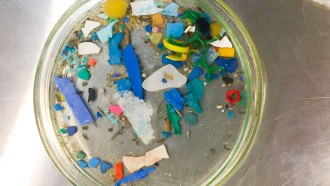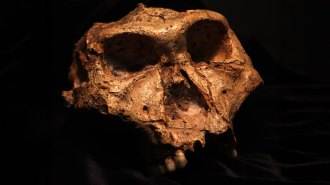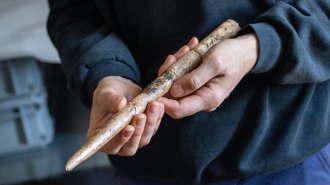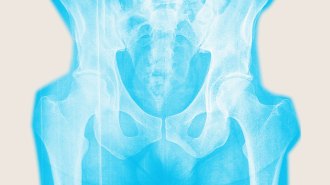Humans
Sign up for our newsletter
We summarize the week's scientific breakthroughs every Thursday.
-
 Health & Medicine
Health & MedicineA cup of chickpeas a day lowers cholesterol
Adding a cup of chickpeas or black beans to people’s daily diets could improve health by lowering cholesterol and inflammation, a new study suggests.
By Meghan Rosen -
 Archaeology
ArchaeologyPrecolonial farmers thrived in one of North America’s coldest places
Ancestral Menominee people in what’s now Michigan’s Upper Peninsula grew maize and other crops on large tracts of land despite harsh conditions.
By Bruce Bower -
 Health & Medicine
Health & MedicineA diet full of tiny plastics triggered health problems in mice
Mice exposed to polystyrene nanoplastics developed problems in their guts and livers. It’s not yet clear if humans are similarly affected.
By Meghan Rosen -
 Health & Medicine
Health & MedicineU.S. moms say their mental health is getting worse
A national survey finds that mothers of children ages 0 to 17 years report mental health declines from 2016 to 2023.
-
 Chemistry
ChemistryLotions and perfumes affect the air near our skin
The personal care products suppress reactions between skin oils and ozone. It's not clear how, or if, this chemistry change might impact human health.
By Skyler Ware -
 Anthropology
AnthropologyMales of this ancient human cousin weren’t always bigger than females
Molecular evidence from a 2-million-year-old southern African hominid species indicates sex and genetic differences in P. robustus.
By Bruce Bower -
 Science & Society
Science & SocietyStudents’ mental health imperiled by $1 billion cuts to school funding
The Trump administration is cutting $1 billion in grants that support student mental health. That has educators worried.
By Sujata Gupta -
 Health & Medicine
Health & MedicinePersonalized gene editing saved a baby, but the tech’s future is uncertain
The personalized CRISPR treatment could be the future of gene therapy, but hurdles remain before everyone has access.
-
 Anthropology
AnthropologyHumans used whale bones to make tools 20,000 years ago
Ancient scavengers of the beached beasts turned their bones into implements that spread across a large area, researchers say.
By Bruce Bower -
 Health & Medicine
Health & MedicineWet fingers always wrinkle in the same way
Pruney fingertips aren't swollen sponges — the wrinkles actually come from blood vessels constricting and pulling skin inward.
-
 Health & Medicine
Health & MedicineIt’s tricky to transplant a bladder. How surgeons finally did it
The person who received the bladder is doing well, and the successful transplant could offer hope to thousands of people with bladder dysfunction.
By Payal Dhar -
 Health & Medicine
Health & MedicineDon’t wait until menopause to strengthen your bones
Screening for osteoporosis is recommended at age 65, but experts say women should be proactive about bone health long before that.